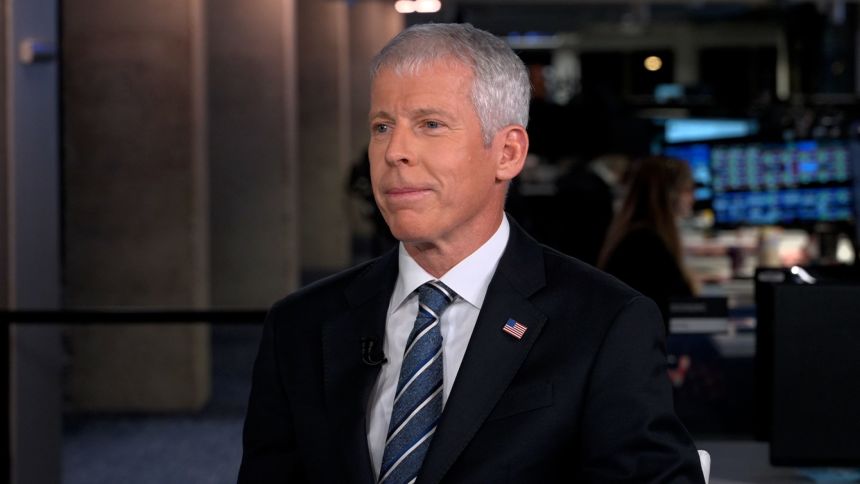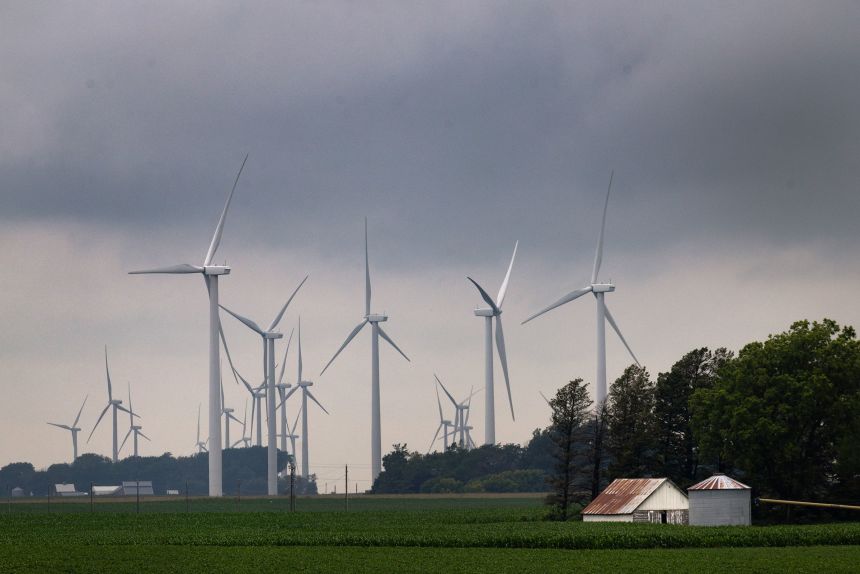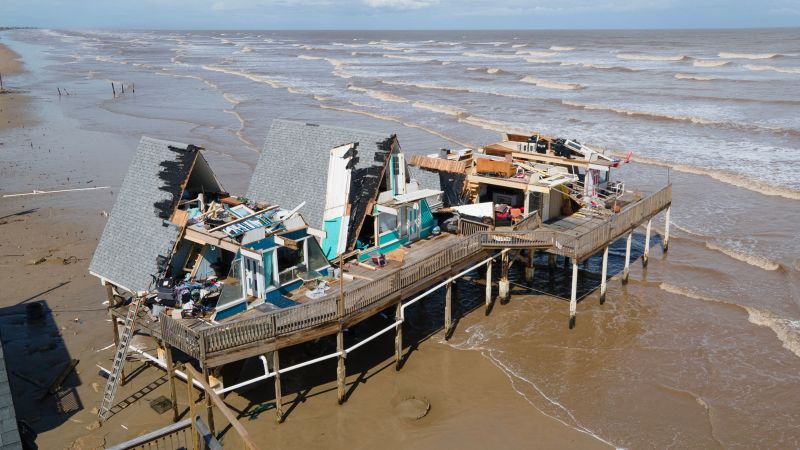Tweet
Email
Link
Dozens of veteran climate scientists are launching a coordinated response to a Trump administration report that casts doubt on the severity of climate change. The report, released last week alongside proposals to deregulate some polluting sectors, was authored by five researchers well-known for sowing doubt over the impacts Americans are feeling from the climate crisis.
The scientists, responsible for authoring or contributing research to hundreds of peer-reviewed studies, want to counter what they interpret as the Trump administration’s attempts to wipe credible, widely accepted climate science off the record.
In addition to the report, which the Department of Energy and Environmental Protection Agency are using as evidence to weaken pollution rules, the administration has removed all congressionally mandated climate assessments from federal websites. Energy Sec. Chris Wright said the administration is changing those previously published assessments before they put them back on the web, CNN reported.
The scientists are planning to author a public comment on the Energy Department’s report released last week, according to Andy Dessler, director of the Texas Center for Extreme Weather at Texas A&M University, who is organizing the response.
“We want to get all the science into the public record, so that any debate over this will have access to solid science,” Dessler told CNN.
In addition to the self-organized efforts by mainstream climate scientists, the National Academy of Sciences announced Thursday it is launching a comprehensive review of climate science findings since 2009 — the year the endangerment finding was issued, which concluded climate pollution was endangering public health and welfare. The fast-track review, which the academy says will be self-funded, is set to be completed by September.
“Decades of climate research and data have yielded expanded understanding of how greenhouse gases affect the climate,” NAS president Marcia McNutt said in a statement. “We are undertaking this fresh examination of the latest climate science in order to provide the most up-to-date assessment to policymakers and the public.”
In stark contrast to the National Climate Assessments, which take years to research with multiple rounds of peer review, the five-person Trump report took just two months to research and write, with no peer review. Several climate scientists whose research was cited in the Trump report said it misused or misrepresented their work.
Dessler said scientists are going through the report “section by section” to address all “the mistakes (and) the things they left out.”
“There are a lot of things in there that fall into both those categories,” he added. “It is not a valid representation of the science of climate change, and we want to make that clear.”

One federal climate scientist, who requested anonymity because they are not authorized to talk to the media, told CNN the notion that the DOE report is an assessment or comprehensive review of climate science is “nonsensical on its face.” The scientist pointed to the lack of peer review, paucity of the report’s authors and rushed timeframe, among other reasons.
“It’s just garbage,” the scientist said, referring to the reigniting of the “false debate” over whether climate change is caused by humans and threatens lives and livelihoods. “It’s like somebody took all the bullshit from 10 years ago, didn’t refrigerate it and has now regurgitated it.”
Kim Cobb, who directs the Institute at Brown University for Environment and Society and is part of the group working to respond to the DOE report, told CNN it’s significant that the Trump administration is deep-sixing the climate assessments at the same time it’s releasing a misleading new report.
“The fact that this administration has buried the gold standard for climate science — the National Climate Assessments — while lifting up a report filled with misrepresentations and half-truths is a grim historical marker,” she said in an email. “It’s giving me flashbacks to 2005, when such false debates raged.”
Cobb said she hopes to help “set the record straight” on climate science in their response to the DOE report. She intends to speak at the public hearing on the repeal of the endangerment finding, a 2009 scientific finding that human-caused climate change endangers human health and safety, which has underpinned many of the federal government’s biggest pollution regulations.
Wright told CNN he hand-picked the four researchers and one economist who authored the Trump administration report: John Christy and Roy Spencer, both research scientists at the University of Alabama at Huntsville, Steven E. Koonin of Stanford University’s Hoover Institution, Georgia Tech professor emeritus Judith Curry and Canadian economist Ross McKitrick.
“I just made a list of who do I think are the true, honest scientists,” Wright said. “I made a list of about a dozen of them that I thought were very senior and very well respected. I called the top five, and everyone said yes.”
Zeke Hausfather is one of the scientists whose work was misrepresented in the DOE report and is the climate research lead at financial services company Stripe. Hausfather also helped author the Fifth National Climate Assessment.
Hausfather told CNN he “wasn’t that surprised” that his research was included, because it has focused on how climate modeling can be improved.
“The problem with the way both the EPA and DOE report used my findings is they left out the context of how the community has adapted and evolved” on modeling, Hausfather said.
In arguing for the endangerment finding to be overturned, the Trump EPA highlighted how the direst climate scenarios are getting less likely; therefore, the US government doesn’t need continue to adhere to the endangerment finding — a bit of circular reasoning these scientists are particularly frustrated about.
It’s as if the Trump administration is saying, “We’re heading towards a slightly less dire future in terms of emissions, so we can roll back existing climate policy,” Hausfather said.

The worst-case scenarios, like the planet warming to 4 degrees Celsius by the end of the century, are looking less likely precisely because nations are cutting their planet-warming fossil fuel emissions and moving to clean tech like wind, solar, batteries and electric vehicles.
That doesn’t mean the planet is out of the woods.
“A 3-degree world by 2100 is going to be a world with huge climate damages,” Hausfather said.
Wright called the critiques about the DOE report misusing others’ research an “unfair assessment.”
“I don’t know that particular author, but if some data set is taken from some author and his conclusions are different from the data set, well, that’s the process of science,” Wright said. “It’ll be improved as we get feedback and comments from others, and we’ll continue to elaborate on it.”
Dessler, the climate scientist leading the response to the DOE report, said the science community is angry about their work being deleted and twisted to fit the Trump administration’s narratives promoting fossil fuels and downplaying the severity of climate change.
“People are really mad,” Dessler said. “We’ve devoted our lives to doing good science, and bad science is offensive. They’re not raising interesting questions and they’re not identifying things that scientists have overlooked; much of it is already debunked.”
